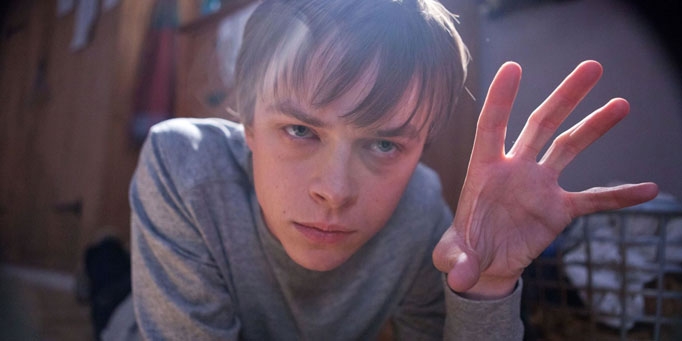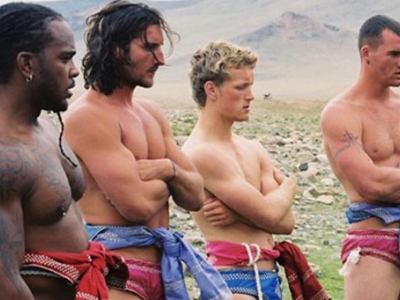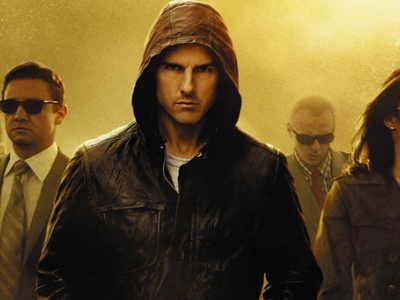
Chronicle: Movie Review
Three teens develop superpowers, but without moral guidelines, what are they capable of?
The world's most powerful teens?
The movie distributor who pitched this film to me described it roughly as, “… a bunch of teenagers who get super powers, then blog about it.” I’ll be honest, I wasn’t enthused. But Chronicle is so much more; a subtle examination of what excessive opportunity does to the morally ignorant mind.
Chronicle opens its storyline with the sad video diary of Andrew Detmer (Dane DeHaan), a bright but closed-off teen whose mother is dying of lung disease and whose father is a violent alcoholic. Constantly bullied at school, Andrew begins to document his own life as a means of trying to externalise the pain. A classmate asks him, “You don’t feel like [the camera] puts a barrier between yourself and stuff?” Andrew replies, “Maybe I want a barrier.”
However, Andrew’s cousin Matt (Alex Russell) is determined to stop him disappearing from the world, and invites him to a midnight rave at an abandoned factory. Alone in the midst of everyone else’s happiness, Andrew follows Matt and one of the school’s most popular kids, Steve, out into the darkness where they discover a cave leading to a strange glowing rock. Chronicle doesn’t attempt to explain what happens, but days later it becomes clear the boys are developing the ability to manipulate objects with their minds. As their powers grow, Andrew discovers a camaraderie with Matt and Steve he’s never had, but his emerging abilities don’t alter his tragic home life. The film’s question quickly becomes, what will keep him spinning off the rails when the two collide?
Unlimited power with no moral framework
Mark my words, director / writer Josh Trank is a talent to watch. The way he tells the entire story through the portable cameras that now populate our lives is reminiscent of J.J. Abrams’ Cloverfield but much better realised. He also reveals how much of our lives is ‘chronicled’ because of our increasing interest in a media-managed existence. But probably best of all, Trank manages to develop sympathetic coming-of-age characters (I was reminded of Stand By Me), while totally avoiding the overblown world-at-risk scenarios that proliferate in superhero films.
As fantastic as Chronicle’s storyline is, the problems facing its teens are utterly believable. Andrew, Matt and Steve respond to their new powers with predictable teenage pranks. However, their lack of a moral framework soon begins to tell. Matt operates as the film’s conscience. After a joke gone tragically wrong, he exclaims, “We can’t just do things – we’ve got to think!” And so the rules come out. But because they are restrictions they’ve made up for themselves, when push comes to blast-out-of-this-world, they easily drop away. When Andrew concludes, “I am an apex predator. A lion doesn’t feel guilty when it kills an antelope. I think there’s something in that", he effectively places himself beyond the reach of their rules. And so the film’s tagline comes into effect: ‘What are you capable of?’
What the characters clearly lack is an authority that sits above their capabilities, a reason for not doing that which they can, even if it could be justified by someone else’s evil. This is exactly where Chronicles’ super beings become most like every other teen. Today’s youth are confronted with more possibilities than any other generation growing up in Australia. They have freedoms and a level of access to resources and relationship that surpass all who’ve come before. When ability is no longer the question, what will keep the lid on behaviour?
Watching Chronicle with your kids
Chronicle is going to be immediately appealing to teens who’ve fantasized about what it would be like to have super powers. Basically any fan of Heroes or the plethora of comic book films that have come out in recent years. Watch the rating though; the ‘M’ covers occasional coarse language and realistic violence. Thinking it through afterwards, I’d be tempted to ask:
- Why do you think Andrew went ‘bad’?
- Why wouldn’t you do the same thing – what protects you?
- What would have happened to the plot if Andrew actually thought he’d be held accountable?
For more articles from Growing Faith, subscribe to our monthly e-newsletter.
To hear about the latest books and resources from Youthworks Media, subscribe here.







